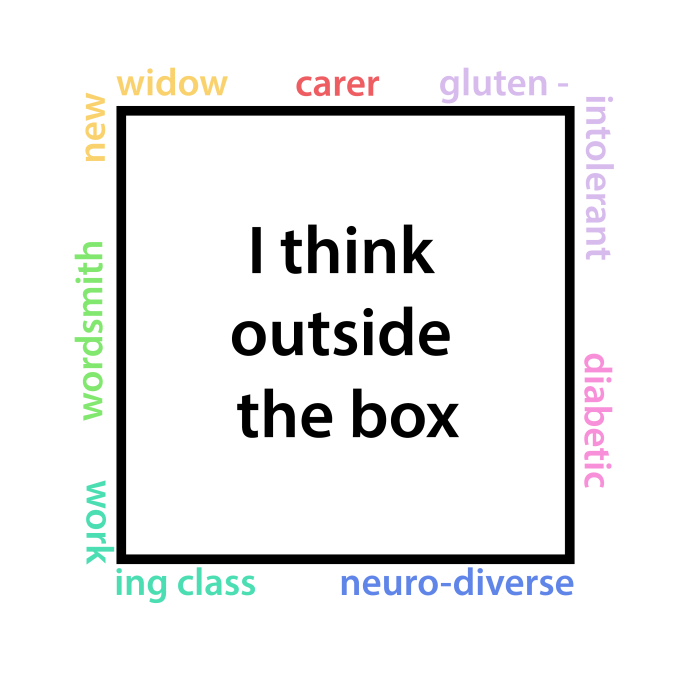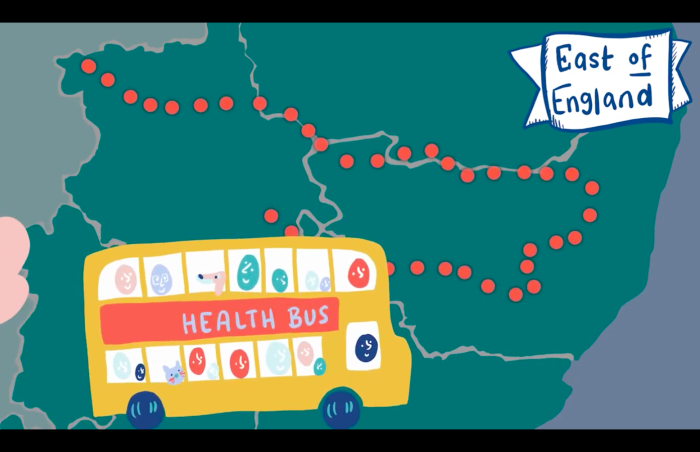In this blog, Amander Wellings provides insights into her service-user involvement with the ARC EoE Covid-19 food
study.
The Covid-19 food study is a qualitative study of how the pandemic has affected food and eating practices of people
across the East of England. During this study, the research team learnt that Covid-19 and the mitigation measures put in place from March 2020 have amplified existing dietary health inequalities. For more details about the study click here.
What do I bring to the Covid-19 Food study?

- A critical friend: I will see where words and pictures could be read the wrong way, seek out ‘research speak’ and ask kindly to have it removed or rephrased. Why share what is not easily understood? Important messages can sometimes be hidden in over-complication, abbreviation and jargon.
- Slayer of Elephants in the room - (no elephants are hurt in this process). Just pointing out what others may not want to see. Asking the awkward questions. Asking any questions as this builds understanding for all.
- A new pair of eyes attached to a brain that thinks differently.
- Autistically-gifted: I overthink in words and pictures. Give me a sentence and it will magically leap off the page and form more words, better words, shorter words, active words, succinct and snappy. No room for padding and waffle in my brain. It hoovers up knowledge, facts, always seeking what can be easily understood. I ask myself: What makes me want to know more? What makes me care about an issue? How can I help prevent unfairness and injustice? I am an Asperger superhero. Now I am thinking about my superhero costume colours and design. Come back brain your mission right now is to write this blog.

- I think in pictures too. I helped the team come up with imagery ideas for the animation, How can we tackle unequal access to food and improve health in our community? East of England becomes a map! Food vouchers become a golden token exchangeable for a packed lunch. A bus symbolises journeys by those without their own transport, often those hit by food inequality and scarcity. Why not have the bus advertising healthy food? A library needs to be included as a place where people meet and ideas can be shared.
Many more ideas I fed into the animation.

Still from animation: How can we tackle unequal access to food and improve health in our community? (2021)
What did I bring to the Covid food study policy briefings?
Each policy briefing is tailored to one of four population groups and includes policy
recommendations for their specific needs in relation to food and health inequalities: Policy briefings
can be viewed here.
With these I cut waffle, made language more active and questioned why certain quite weak quotes
were included. For example, I got quotes explained: “who was the mystery Jane in the quote?”, it
made more sense when her role was explained in brackets. I suggested only one strong quote per
briefing. Politicians may not want to read masses of text or have the time to. By having the policy
recommendations first instead of at the end, people could speed read just them.
I also removed the overuse of the word ‘vulnerable’. These people are not vulnerable - that is
negative labelling. My late hubby hated being referred to as vulnerable. Many are only made
vulnerable because of lack of support and care and loss of control. Covid took control away from
many who have fought to remain independent. I also fed back on some of the imagery used and
cut anything that was stereotypical.
I have survived on benefits so I have empathy. I have cared for my husband until he passed away
aged 80, just before COVID-19 restrictions started. I still care for my brother with learning
disabilities and autism.
Final thoughts
I was a fresh set of eyes to this work, not having been involved in this research until the
dissemination stage. I was not precious about anything included in it. I could wield the critical
hatchet and cut large amounts of text and rephrase stuff and I think the researchers valued that.
I valued the opportunity to work at this level, having never been asked to do policy briefings before.
Perhaps in hindsight I did not have much knowledge of being a new mother or having young
children and someone with that lived experience may have changed more. I understand long term
conditions and older people though. I have a passion for food and healthy food availability and
really hope this research pushes the government in the right direction to learn from those
interviewed. Those who have faced food deprivation, shortages, and enforced changes in how they
relate to food.
All my work I undertake is not of the box tick variety. I get frustrated if I feel I do not have a role to
play. This research team really value effective public involvement. I can see where changes were
made based on my suggestions.
Please view the animation and share the policy briefing documents so the word is spread wide and
positive change is made. Without people sharing research results, we do not achieve the much
needed change.